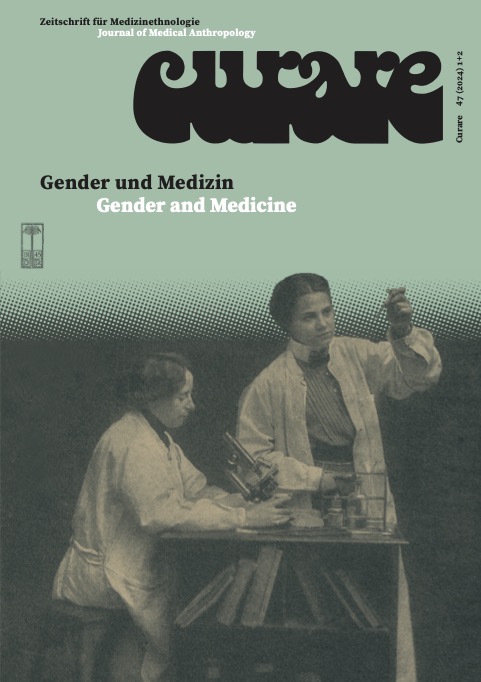Gender and Medicine
Special topic edited by Barbara Wittmann & Alena Mathis
The thematic focus “Gender and Medicine” of this Curare issue explores historically shaped and enduring gender imbalances within our medical structures and their influence on our everyday interactions. The assembled articles draw on insights from critical feminist initiatives and the women’s health movement. They ask why people develop different illnesses depending on gender and how these illnesses are dealt with on the basis of specific socio-cultural influences. These contributions trace historical developments and, building on this, they examine current conditions of gender-related power relations. The term ‘gender medicine’ is intended to help bring marginalised perspectives into focus in order to overcome the view of the cis-male body as the medical-pharmaceutical norm, and to develop a new way to understand and respond to health inequities in clinical care and health services delivery. The articles also reflect (self-)critically on the Eurocentric narrowing of perspectives in order to shed light on the colonial effects of ‘medical expansion,’ effects whichhave hardly been addressed to date. As the critical contributions in this issue show,‘gender medicine’ is still a utopia or a ‘non-space’ in many parts of the medical profession. In the absence of a place where medicine is practised in the way the authors and research partners would like to see it, we at Curare are glad to provide at least a space for reflection. We hope that the contributions will help to initiate the further development of medicine towards a more inclusive and equitable project.
